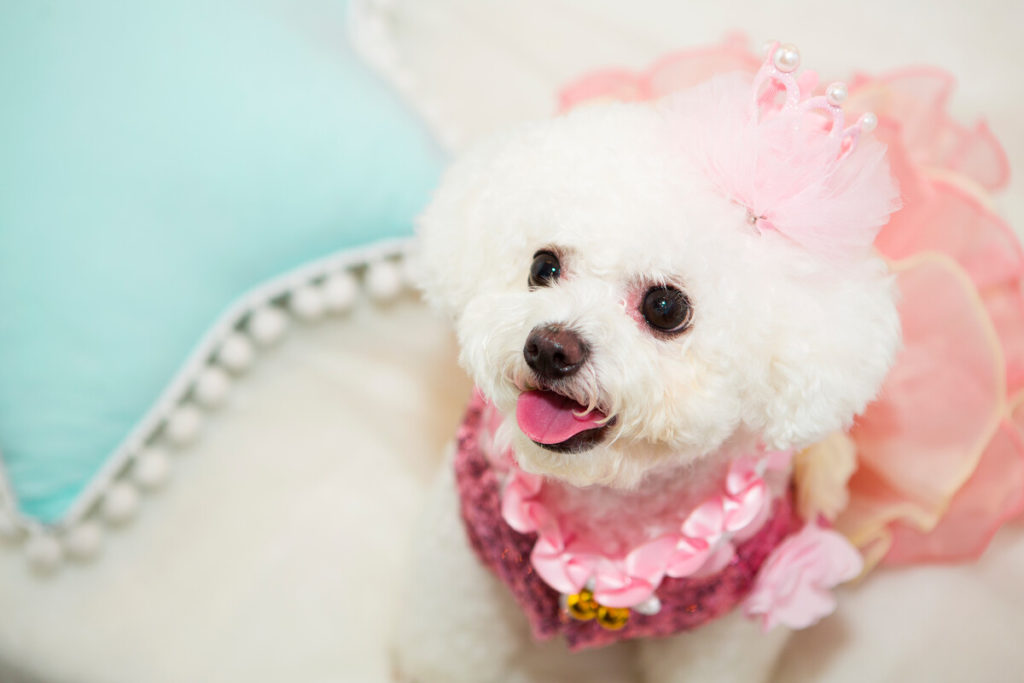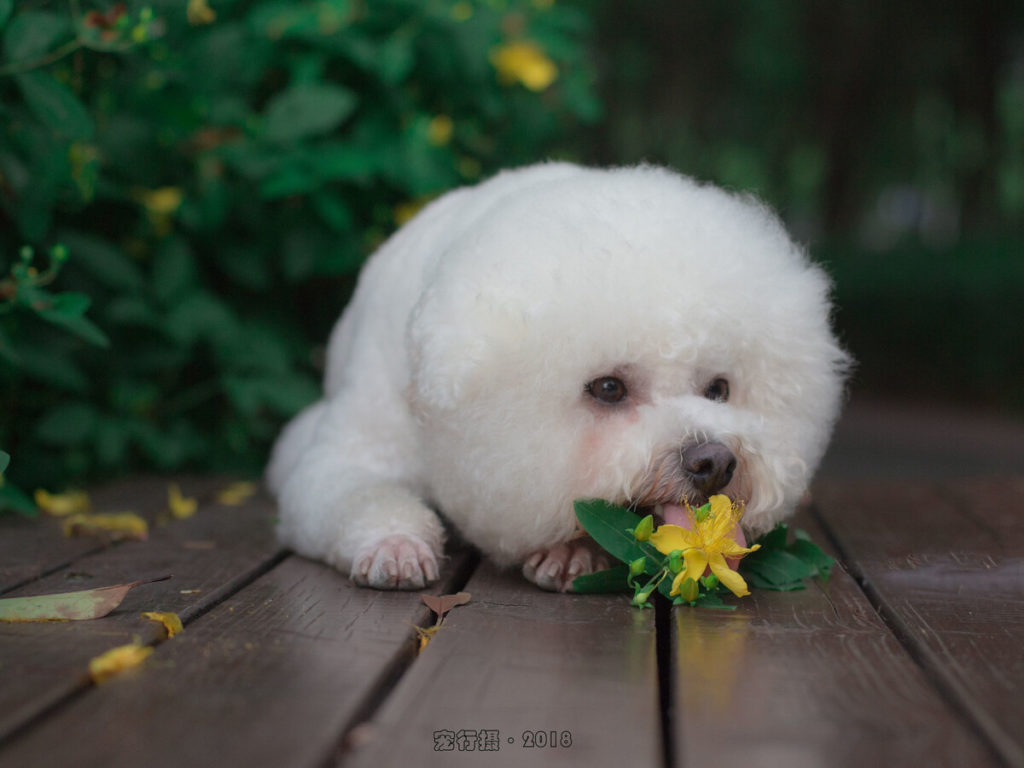Any owner of an Siberian Husky will know that the breed is naturally very greedy. It’s rare we come across a Husky who won’t happily eat everything and anything that’s put in front of them. We are regularly asked by owners ‘why does my Husky eat so fast?’ out of concern for their health and a Husky’s love of food is usually the prime reason. Eating fast can increase the risk of the potentially fatal health problem that is canine bloat, but what happens if there is a behavioural issue behind it and what should you look out for?
Food anxiety in rescue Huskies
One of the most common issues we see when it comes to speedy eating usually happens with rescue Huskies. It’s very sad to consider but some Huskies, unfortunately, come from homes where food was never guaranteed and mealtimes were irregular. This understandably causes anxiety surrounding food in the Husky and makes them gulp their food down when it is offered in fear it will be taken away or they won’t get to eat again for a long time.
When a Husky is moved into a new home, these behaviours do not suddenly disappear. It can be frustrating watching them continue to eat so fast despite having regular mealtimes, but you need to understand where this behaviour comes from. Old habits, especially those that come from fear, take a long time to get over.
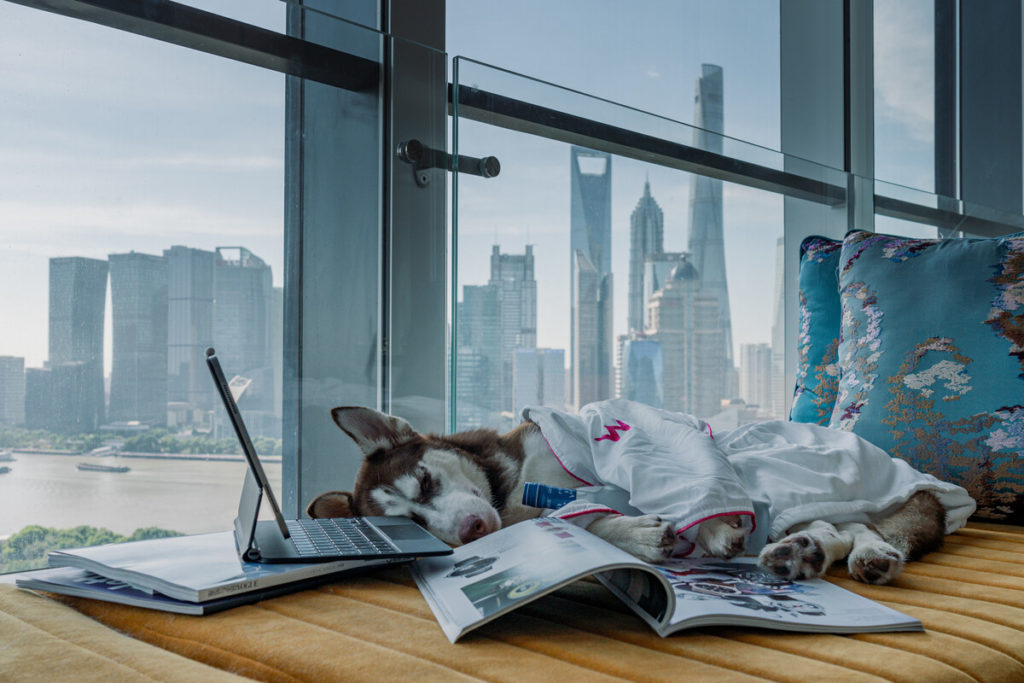
The best advice we can give is to try your hardest to stick to a regular feeding schedule, ensuring that mealtimes are the same every day. It can take months or even years but eventually your Husky will realise that food is guaranteed and will be able to relax a little bit whilst eating.
If you’re concerned your Husky’s food anxiety is leading to aggression towards you, speak to a vet for further advice.
Multi-dog households
If your Husky is part of a multi-dog household, it could be the reason for them eating so fast. When we say ‘multi-dog’ household we are referring to homes that normally have more than one dog living there and in particular those where the dogs are not kept separated.
All dogs see food as an essential resource along with other basic life necessities such as water and shelter. This survival instinct would have allowed dogs to live in the wild in their previous lives and, despite being domesticated for thousands of years, their instincts have remained fairly unchanged. Behaviours relating to these needs are usually not noticed as food and shelter are regularly provided to them, but when living with other dogs their instincts can cause some competition.
We often see that Huskies who live with other dogs become very protective over their food and will often try to eat it as fast as possible to make sure the other dogs can’t get to it. Even if your Husky gets on well with the dogs they are living with, food can still trigger their survival instinct. Alternatively, if your Husky is particularly bossy over the other dogs within the home, you may even find that they try to eat their food as fast as possible so they can steal food from the other dogs.
If you think competition could be the reason for your Husky eating so fast, we highly recommend separating your dogs during mealtimes. Feeding them in different rooms will allow them to focus on their own food rather than worrying about if another dog will steal from them, or if they should steal food themselves! After finishing their food, we suggest continuing to keep them separate for 5 minutes so they can learn there is no need to rush their eating and that eating slowly has no consequences.
Misinterpreting negative attention and boredom eating
It’s very easily done, but sometimes you can end up giving attention to your Husky in the wrong way. Those of you who have previously tried to stop your Husky from eating so fast by chastising them or pulling them away may notice that it actually causes them to eat even faster.
This is because in many cases, a Husky can’t tell the difference between positive and negative attention. Having the extra fuss can be seen as a positive thing and they may be happy to have been noticed by their owner, even if in reality you’re trying to tell them off! Many Huskies then end up trying to eat faster and faster in hopes of getting more attention again.
In a similar kind of behaviour, Huskies who are overly bored may succumb to eating their food as fast as possible as a form of entertainment. Huskies are a very energetic breed and need a lot of stimulation throughout the day to prevent them from developing destructive behaviours. When a Husky becomes under-stimulated regularly, they can often resort to scarfing their food down as a way to relieve some of the monotony from the day.
In both of these cases, we suggest buying your Husky a slow feed bowl. These make eating fast extremely difficult as they force a dog to take smaller mouthfuls, hence prolonging the overall feeding time. You can check out our personal recommendations for the best slow feed bowls for Huskies along with our other tips for slowing down their eating here.
If your Husky has gotten used to your attention then of course we recommend simply leaving them alone whilst they eat so they can stop associating eating fast with being rewarded. For those of you with under-stimulated Huskies, we suggest trying to incorporate more exercise into their daily routine or providing more ways for them to burn some energy.
Final Thoughts
Keeping your Husky healthy includes trying to reverse any detrimental behavioural problems that may have developed. When it comes to feeding, the most obvious to look out for is speedy eating but using our advice, you should have your Husky eating at a responsible pace in no time.


